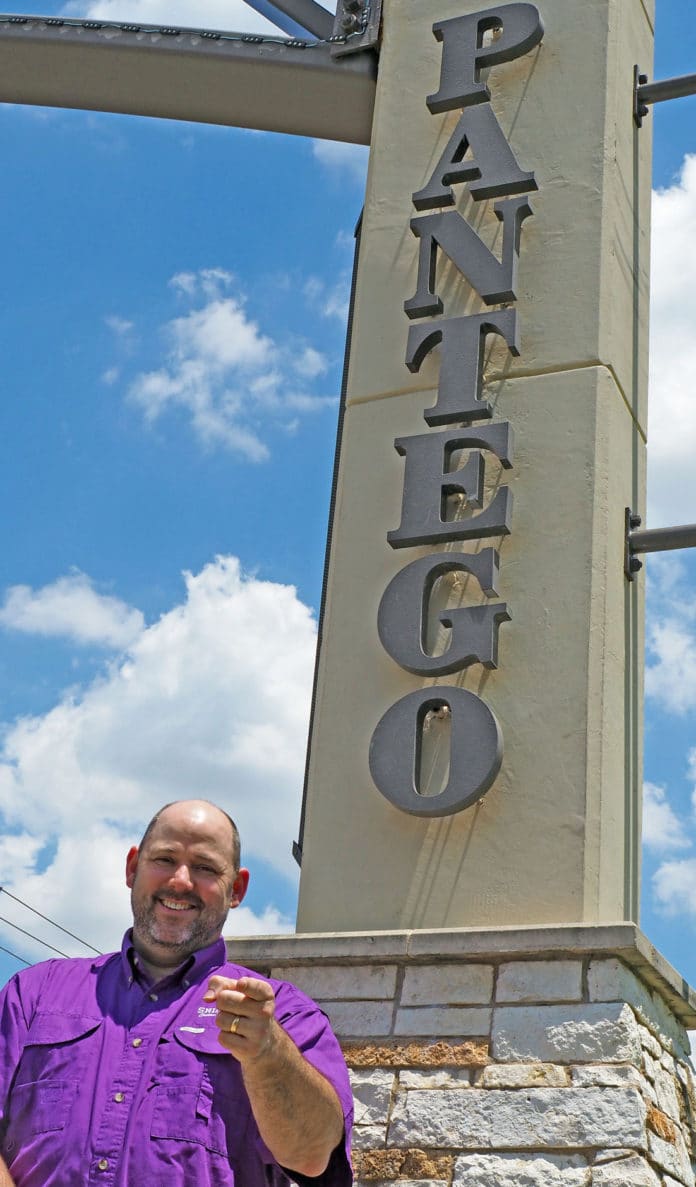In 1993, Pantego voters approved a half-cent sales tax devoted to a mix of economic development and civic amenities. To date, that has helped fund a new police station, the remodeling of city hall and further development of Bicentennial Park, Pantego’s primary park.
Pantego Economic Development Corp. Board President Danny Lakey mostly ponders the ups and downs of promoting small-business development in this prosperous little city of 2,600, though every now and then a home run comes along.
That happened a few days ago when Holiday Inn Club Vacations – the company markets 28 resorts and thousands of timeshare villas – debuted the completion of a $1.6 million renovation. And, along with that, announced plans to expand employment by 700 jobs by year’s end at the company’s Bowen Road and Pioneer Parkway location.
Clearly that was a big win.
Mostly though, Lakey notes, Pantego caters to small businesses. A lot of them.
Lakey – himself the owner of a thriving T-shirt business in town called Shirt Werx – figures the main role of the PEDC (members are council-appointed volunteers) is to make the city attractive to a growing number of privately owned small businesses with a smattering of franchises and chains tossed in. With some amenities for the home folk as well.
Though Pantego’s history dates from the Civil War – the town’s namesake was a Caddo Indian – it has existed as an incorporated community only since the early 1950s after an on-again, off-again anti-annexation struggle with a growing Arlington.
“It’s a very small town in the middle of a gigantic bigger town, so people think they’re still in Arlington. They are not and we’re trying to get the Pantego name out,” says Lakey, 50, who both lives and works in Pantego.
“As small communities go, we’re unique with lots of economic activity, most of which is driven by mom and pop shops. Walk inside pretty much any business and whether it’s David’s Barbecue or Saljo’s Pizza and Pasta, you’ll mostly likely see the owner himself behind the counter,” Lakey said.
That’s the kind of involved ownership PEDC has coveted since voters approved a half-cent sales tax in 1993 devoted to a sort of mix of economic development and civic amenities, a total package approach.
Since then the funds – roughly a half million dollars annually at this point – have been used to help fund a new police station, remodeling of city hall and further development of Bicentennial Park, Pantego’s primary park.
The trick, Lakey notes, is to persuade the voluminous traffic moving through Pantego’s three main drags – Pioneer, Bowen and Park Row – to park and do a little shopping at one of the city’s 324 sales tax-collecting businesses.
To accomplish this, he says, more than cosmetic improvements to city amenities is involved.
“As a small town we can do things to help small business that a lot of larger municipalities wouldn’t consider,” Lake said.
Example?
“We provide small-business loans at low business rates, the most recent example being Jambo’s Barbecue, Mad Mike’s Ice Cream and New Main Brewing Company,” Lakey said.
Besides low-interest loans, PEDC also provides sign grants, typically for half the sign costs; recent examples include Pantego Café, Iva’s Flower Shop, Mad Mike’s Ice Cream, Hank and Ellie’s Gift Shop, and Maggie and Me Boutique – all small businesses in the Pantego mold.
“We figure get a new sign and it both makes it more attractive and drives business, which eventually translates to a more appealing place to shop, as well as to increased sales taxes for Pantego.”
The strategy is not entirely altruistic.
“Every city needs a pot of money to operate, but commercial properties pay higher property tax rates and also generate sales tax proceeds, a big chunk of which ends up in the general fund,” Lakey says. “Economic development keeps property taxes low.”
There’s another perk. Most shopping in Pantego involves residents from other cities, so sales tax amounts to found money. It helps that the city’s share of sales tax funds makes up more than 38 percent of the general fund.
New projects for PEDC?
More loans and signage but also more Bicentennial Park improvements. To that, add enhanced LED-lit street signage at major intersections like Bowen and Park Row, or Bowen and Pioneer. Signage that will also make the Pantego community identity clear.
“And we’re working on developing distinctive night lighting for Pioneer as well, and some monument signage,” Lakey said. “That one may take us another two or three years but we’ll get it done.”
Lakey estimates Pantego now has about 27,000 square feet of vacant retail property spread across several locations. PEDC’s goal is to fill it all – mostly of course with new small businesses.
O.K. Carter is a former editor and publisher of the Arlington Citizen-Journal and was also Arlington publisher and columnist for the Star-Telegram and founding editor of Arlington Today Magazine. He’s the author of the definitive book on Arlington’s colorful history, Caddos, Cotton and Cowboys: Essays on Arlington.
okcarter@bizpress.net








